Why Is My AC Compressor Working But Not Cooling?
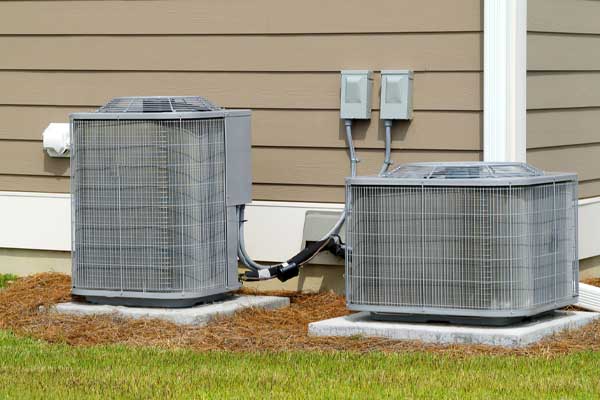
Heat can drain us of our energy. Work seems more difficult on hot days while making it harder to sleep due to discomfort. Fortunately, we have our air conditioners to help us find relief! Unfortunately, the summer is when most ailing air conditioners tend to malfunction. Good thing you can employ the help of a professional HVAC technician to get your system back to normal working order. In this article, we delve into a common air conditioning problem that homeowners face – AC compressor working but not cooling.
Why Isn’t My Air Conditioner Compressor Cooling My Home?
Contents
- Why Isn’t My Air Conditioner Compressor Cooling My Home?
- Incorrect Thermostat Setup
- Dirty Air Filter
- Blocked Air Conditioner Condenser Unit
- Frozen Air Conditioning Evaporator Coil
- Air Conditioner Refrigerant Leak
- Undersized Air Conditioner
- Leaky HVAC Ducts
- The Air Conditioner Registers Are Dirty Or Blocked
- Excessive Heat From The Sun
- Neglected Proper Air Conditioner Maintenance
- Problems with the Exterior Air Conditioner Fan Motor
- Conclusion
- Call R.F. Ohl For All Of Your HVAC Requirements
Air conditioners have numerous components that work together to generate the desired cooling results. If one part isn’t operating correctly, it can create a chain reaction that will result in problems. Finding out the cause of failure is the key to a quick repair. Homeowners should investigate their air conditioners to identify useful clues. If you are in a hurry, you can always call a professional HVAC technician. Licensed air conditioner technicians can use their experience and knowledge to develop long-term solutions. Here are some of the common causes of this cooling system problem:
Incorrect Thermostat Setup
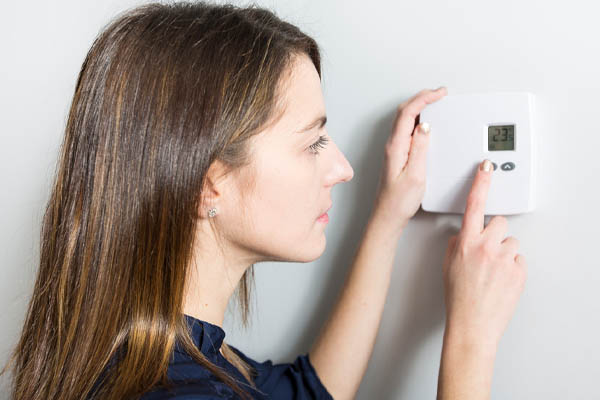
Before assuming the worst, it is better to check some common sense things about the unit first. It can be that its thermostat settings are preventing it from cooling your home properly. Check the thermostat to make sure the settings are correct. See if you can change the numbers or move the dial. Wait for a few minutes to assess if that changes anything. It could be that someone changed the settings while you were gone. The problem is solved if your home gets colder, and you can enjoy a comfortable home.
Dirty Air Filter
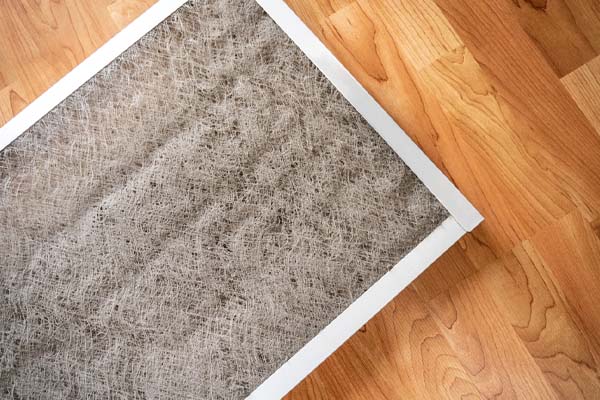
The air conditioner air filter is essential in keeping good indoor air quality. It lets proper airflow pass through the cooling system while stopping dust, allergens, and other pollutants from circulating into your home. The filter also means the air conditioner components stay clean, so they can operate more effectively and have an extended service life. The dirt accumulation on the filter can prevent proper airflow and cause efficiency problems. The system will work harder to cool the home when you have a dirty air filter. Change the HVAC filter and see if this solves the issue. Doing so is a relatively cheap and easy task that any homeowner can do.
Blocked Air Conditioner Condenser Unit
Central air conditioners have an outdoor condenser unit equipped with a large coil. It has thin metal fins that are close together. The condenser fans suck air into the outdoor unit, passing through the coil to get rid of the heat from your home. Dirt, grass, and other debris may get stuck inside the fins and interfere with its normal operations. Dirty air conditioning coils also cause a drop in the system’s energy efficiency. It can also result in a lack of cool air coming out of the registers. Use a brush and vacuum to clean the coil. Contact your local, trusted HVAC technician if the problem persists. Remember to schedule annual air conditioner maintenance as it includes thorough system cleaning to promote efficiency and better operation.
Frozen Air Conditioning Evaporator Coil
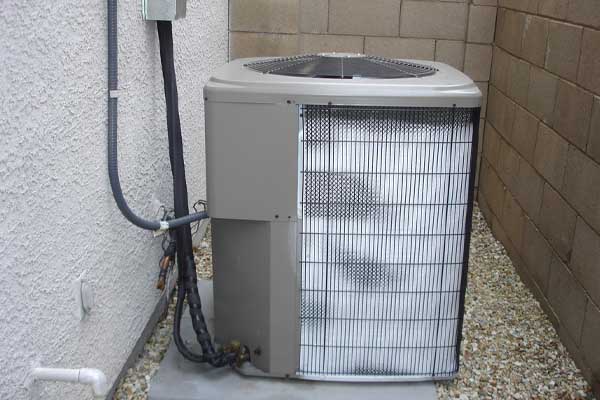
The cooling system’s indoor unit has an evaporator coil. The warm indoor air passes through the coil. This transfers heat to the refrigerant and reduces humidity in the space. Cooler air is then pushed inside to improve the comfort level of the occupants. If the evaporator coils freeze, it interferes with the air conditioner’s operation, so it cannot generate cold air. Other signs to watch out for are higher energy bills, frost on the copper refrigerant tubing or outdoor unit, insufficient cooling, and excess condensate drainage. Call an HVAC professional to help you instead of conducting a DIY repair as this requires professional knowledge.
Air Conditioner Refrigerant Leak
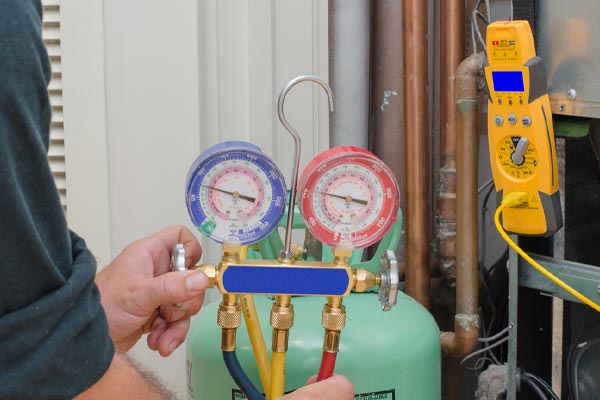
The refrigerant flows across an air conditioner, from the outdoor unit to the indoor unit and back. During this process, the refrigerant changes from liquid to gas, and its temperature also goes up and down. This is because of the cooling cycle wherein it absorbs the heat from the inside and releases it outside. This substance is crucial in the air conditioner’s operation, so there should always be enough to travel around the unit. The tubes may develop leaks, gradually reducing the amount in the system. This obstructs your air conditioner’s cooling ability. It may also cause a strain in the system and cause compressor failure. Ask your HVAC technician to check the refrigerant level and top it up if needed. This is also included in an HVAC contractor’s list during an air conditioner maintenance check, something that should be scheduled annually.
Undersized Air Conditioner
All air conditioners have their own cooling capacity. Therefore, your air conditioner needs to meet your home’s needs. If you choose an air conditioner that’s too small, you may not receive adequate cooling. This will become especially obvious during the hottest days of the year when there are high temperatures, and the air conditioner is pushed to its limits. Check the air conditioner’s rating, which can be found at the back, and use rules of thumb to find out if it is adequate for your home. However, having an HVAC professional conduct scientific load calculations is best. This is something that your air conditioner installation company should have done during unit installation in the first place.
Leaky HVAC Ducts
The ductwork leads the cold air to different rooms around your house. Leaks along the ducts can impact your home cooling in that some rooms never get cold enough while others are fine. Cold air can get out through the leaks. Warm air can also rush in the ducts if they go through warm spaces such as the attic. You might feel warm air coming out of the vents instead of cold air. Room temperature can increase instead of decrease. Repairs can be a challenge as air is invisible. Clever methods are needed to find and seal all leaks. Have an experienced HVAC technician help you.
The Air Conditioner Registers Are Dirty Or Blocked
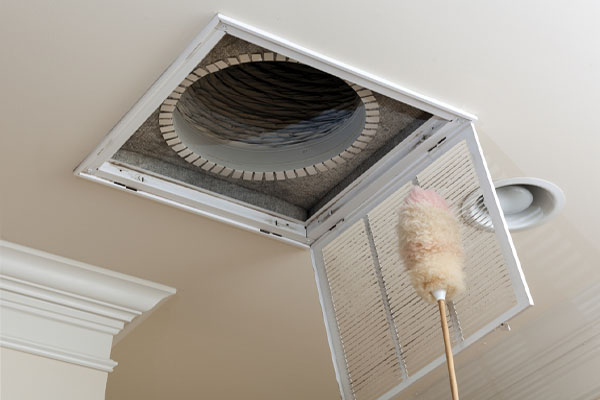
Dirt can build up on HVAC air vents as time passes. It can get bad enough that air cannot flow through them. Homeowners should regularly clean the registers to ensure there are no further problems. At times, poor furniture placement may result in blocked registers. Rearrange them to have better airflow. Use a vacuum cleaner as well to get the dirt around the register. Wipe its surface clean for good measure. Another way is to detach the registers and wash them in the dishwasher.
Excessive Heat From The Sun
The summer season is when we feel the sun’s full power. If you have an air conditioner with enough cooling power, you can counter the heat and stay comfortable inside. Otherwise, your air conditioner will struggle to cool your home. Check if sunlight directly hits the thermostat. If it does, the sensors may think that the room is warmer than it is. This forces the system to work harder, creating significant stress and triggering instability. Make sure to draw the shades of nearby windows during the day to keep the sun out. This helps lower your home’s heat load.
Neglected Proper Air Conditioner Maintenance
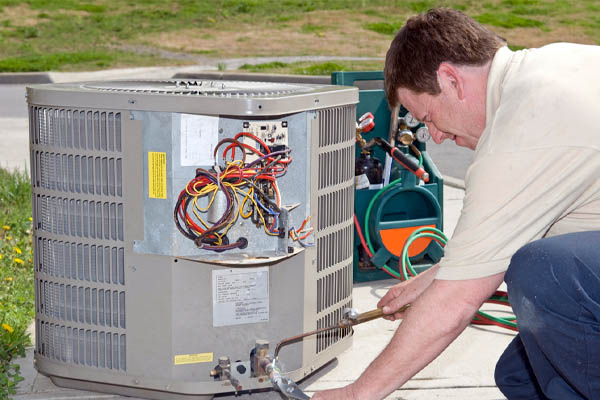
Air conditioners need care for optimal functionality. Homeowners can do some maintenance, such as filter replacement and exterior cleaning. However, other tasks require the expertise of trained HVAC technicians. Have them conduct thorough system maintenance bi-annually or annually. They will determine all potential problems and prevent them from escalating into bigger ones. This way, you can avoid costly repairs.
Problems with the Exterior Air Conditioner Fan Motor
The outdoor unit is equipped with a fan motor that pushes the heat away from your home. A faulty fan can cause the compressor to overheat. This will then result in a sudden system shutdown to prevent more damage. This requires professional attention as it needs a technical solution. Act fast so that the problem doesn’t get worse.
Conclusion
We all want to stay cool in our homes. Air conditioners help us remain cool, comfortable, and productive despite the heat outside. However, problems can still happen, including inadequate cooling. This article includes a list that should help in your preliminary assessment. Ensure that your air conditioner receives AC tune-ups at least once a year to prevent unnecessary cooling problems. Call your local, trusted HVAC technicians for professional assistance if basic troubleshooting doesn’t work. They will provide practical advice, the correct diagnosis, and lasting solutions at a reasonable cost.
Call R.F. Ohl For All Of Your HVAC Requirements
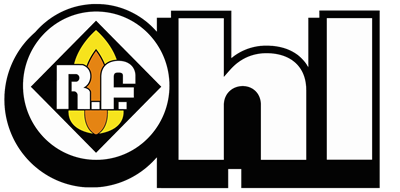
R.F. Ohl provides high-quality HVAC services in the Poconos and the Lehigh Valley, Pennsylvania. Our team of professionally certified technicians offers superior heating and cooling services, including air conditioning tune-ups, boiler repairs, mini-split installations, furnace replacements, and more. You can count on our experienced and knowledgeable techs to promptly and correctly service your HVAC system.
Our company offers highly competitive heating and cooling service prices in the area. Our maintenance services help enhance energy efficiency and comfort while reducing your energy bills. If you need an HVAC repair or replacement system, we can recommend the most suitable and budget-friendly solution for your home. We back all our work with a guarantee to ensure your satisfaction. Schedule a service appointment and call R.F. Ohl today. We offer free, in-home estimates.
Click here to contact us today or give us a call at (610) 377-1098 if you have any questions.